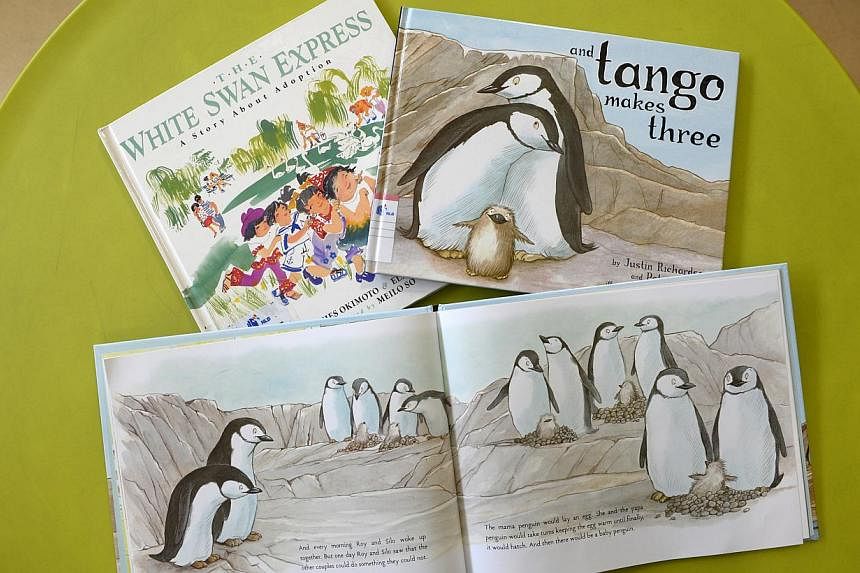I applaud the parent who cared enough about his children's media exposure that he demanded that the library remove And Tango Makes Three from its collection. As a parent myself, and as an academic who champions greater parental involvement in children's media consumption, I am often dismayed at the lackadaisical approach that parents take in such matters.
However, I also caution against what I call the "cot bumper approach" to parental mediation of children's media use. Remember when your infant child lay innocently in the cot, gazing at the colourful mobile suspended above, surrounded by lovingly chosen cloth books meant to stimulate his cognitive development? In those heady days of growth, your child was also cushioned against any kinds of bruises, abrasions and injuries because you had thoughtfully lined the crib with padded cot bumpers.
With complete control over where your child rolled and what your child viewed, yours was the beatific face of comfort and authority that she cooed at daily.
Fast forward to today where your child has a mind and body of his own, and he is free to download from a dizzying array of phone apps, to click on any of the one billion websites and counting, and to roam through the library to pick out books independently. Clearly, the blissfully simple days of enveloping your child with cot bumpers and cloth books are long gone.
In today's bewilderingly complex media landscape, your child is inundated with a panoply of messages. Some of these messages are insightful and edifying, others are banal and frivolous, but most of them are also unmoderated, unregulated, and unpoliced. Much of the media we currently consume no longer involves gatekeepers, appointed arbiters of quality and decency who have final say over what is fit to print or air. Instead, user-generated content is increasingly dominant, be it in the form of personal tweets, Internet memes, self-published books or home videos shared online.
An amateur video of a reading of And Tango Makes Three, for example, is freely available for download from YouTube. Yes, ours is a capricious and unpredictable world where no one can foretell what will next go viral on our personal newsfeeds.
So how then is a parent to shield a child in this cacophonous media environment, to protect him from the adverse influences, discordant voices, and alternative views that run counter to the ideals that you hold dear?
Well, you may be able to effect the removal of a handful of library books, and to successfully lobby for some objectionable websites to be banned, but you will be unable to pulp every single Internet post that you abhor. As heroic as we appear to our children, we parents are ultimately limited in our capabilities. We cannot cover our children's eyes from everything we do not want them to see, block out the voices we do not want them to hear, or hoover up all the dangerous ideas that have been inscribed on paper.
But here is a reassuring thought for all parents. Mortal as we parents are, you and I singularly hold the power to vest in our children the values we want to guide them through every obstacle in life. Irrespective of your political leanings, and regardless of your religious affiliation or sexual orientation, you hold the key to building your child's defences against perspectives that contradict the beliefs that you subscribe to, and that you want your children to subscribe to. You can interpret, moderate and mediate for your child the media content that he is confronted with.
But parental mediation is not a process that is straightforward or that can be completed overnight. Instead, it is an ongoing journey of trust, sharing, discussion, and debate. Rather than obliterate all opinions that you consider deleterious, embrace each alternative view as an opportunity to rationalise to your child why you disagree with it.
If you spot a library book you do not like, explain why! If you are offended by a scene in a television show, unpack it for your child! Foster a relationship of mutual respect and understanding where your child knows that she can turn to you when she encounters messages that are confusing or upsetting.
Instil in your child the skills of discernment that will see him through every PG movie, First-Person shooter video game or inflammatory online comment.
Impress upon your child that she has the autonomy to choose what she reads, sees, and hears, and that even if none of it coheres with her beliefs, that she has the resilience to make sense of it all.
Much ink has been spilt and Internet bandwidth spent on the National Library Board's decision to remove some children's titles from its shelves. But long after the read-ins have disbanded and the Facebook campaigns evaporated, the greater tragedy of the And Tango Makes Three affair is the erroneous message sent to young Singaporeans - that any perspective which runs counter to your own can and should be silenced by a higher authority, be it your parent or a government agency. As caring parents, we would hardly wish to mislead our children on this point now, would we?
Dr Lim Sun Sun is associate professor in the Department of Communications and New Media at the National University of Singapore.

